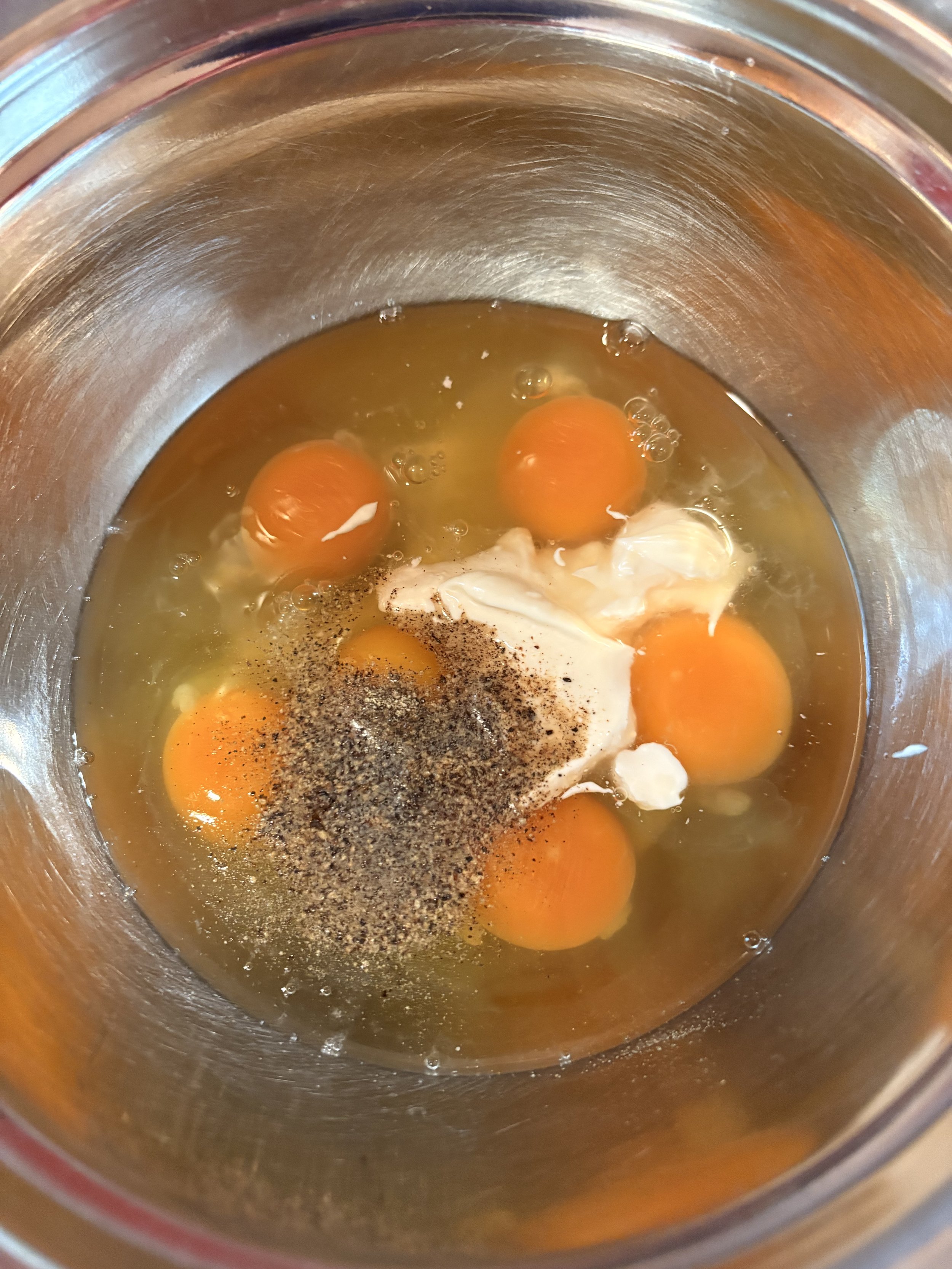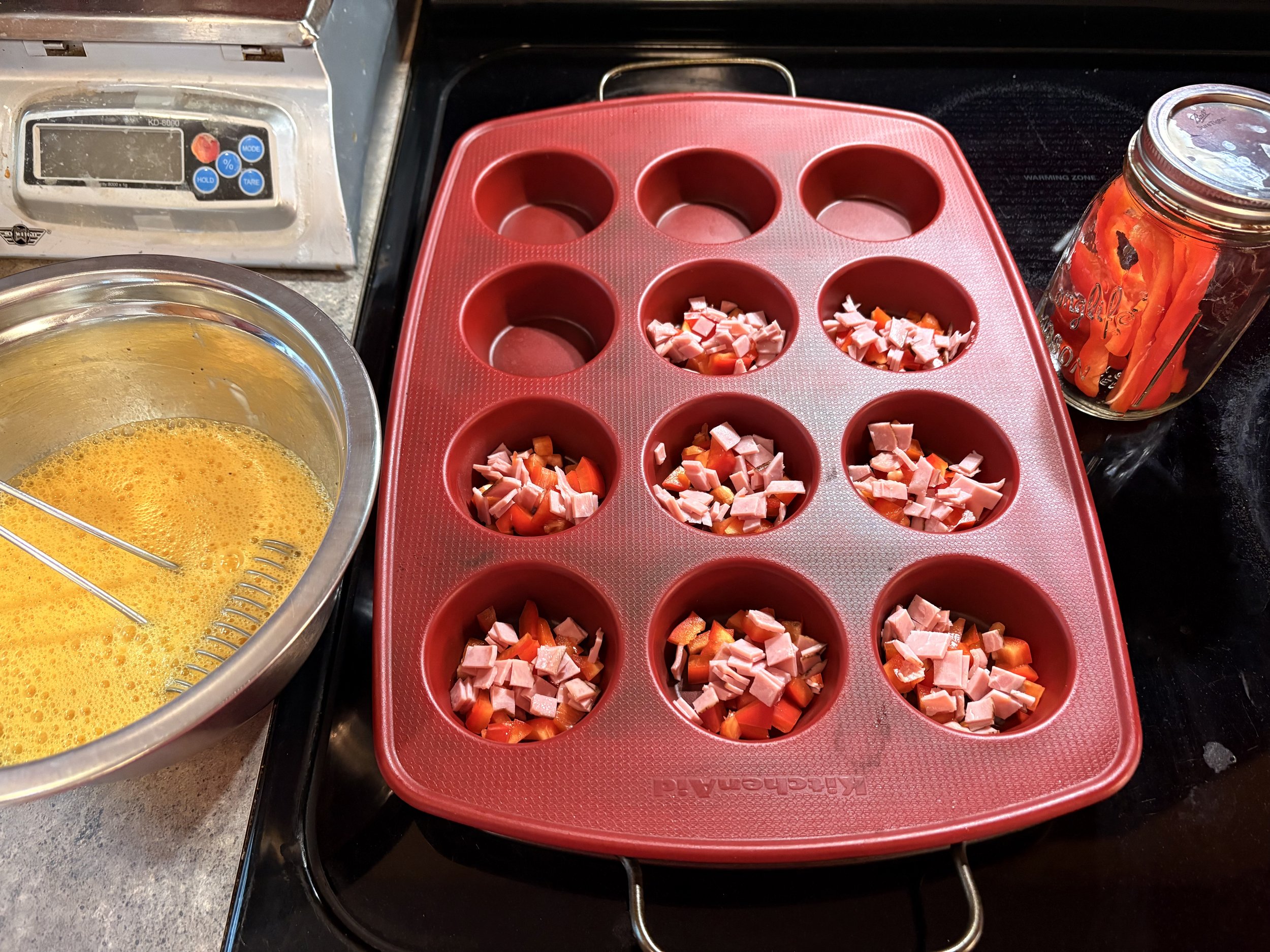I have been following a high protein lifestyle for years. I swear by it for competition prep. I also tend to recommend it to my clients because of the success that I and many of my friends have had following it. I feel good when I follow a whole food, high protein diet and I haven't ever had negative side effects. I know that many have concerns regarding eating a lot of protein, so I wanted to go over what I know and believe about this style of eating.
First, let me explain what high protein diet means.
A high protein diet is any way of eating that is higher in protein than the recommended daily allowance set forth by the USDA. So, anything over 0.8 grams of protein per kilogram of body weight would qualify. For example: a 150lb healthy adult eating the RDA for protein would be eating 55 grams of protein per day. One can get that much protein from one cup of Greek yogurt, three ounces of lean meat and two tablespoons of peanut butter. That's not a whole lot of protein and therefore it's pretty easy to spill into a high protein diet pattern without even thinking about it. If that same person were to eat two eggs for breakfast, a snack of one container Greek yogurt, a turkey and cheese sandwich for lunch, another snack containing a handful of nuts and a steak for dinner, they would consume about 70 grams of protein, which would be considered high.
Now let's look at what studies have shown about the effects of a high protein diet on weight loss efforts and other positive effects of this nutrition plan.
According to a review in the Journal of the American College of Nutrition "There is convincing evidence that a higher protein intake increases thermogenesis and satiety compared to diets of lower protein content. The weight of evidence also suggests that high protein meals lead to a reduced subsequent energy intake."
So, high protein meals make you feel full and satisfied. They also keep you from eating extra calories at future meals and they increase your metabolism. Win, win, win!
A 2004 Study in the Annals of Internal Medicine Concluded that "Compared with a low-fat diet, a low-carbohydrate diet program had better participant retention and greater weight loss. During active weight loss, serum triglyceride levels decreased more and high-density lipoprotein cholesterol level increased more with the low-carbohydrate diet than with the low-fat diet."
This study found that a high protein diet had a positive effect on cholesterol levels. It increased the good cholesterol and decreased the bad. It was also easier for participants to stick to than a low fat diet. Win, win!
According to a 2006 study in the American Journal of Clinical Nutrition "An HP diet, compared with an AP diet, fed at energy balance for 4 d increased 24-h satiety, thermogenesis, sleeping metabolic rate, protein balance, and fat oxidation. Satiety was related to protein intake".
This study confirms the outcomes of the previous two studies mentioned. High protein diets keep you feeling full longer than lower protein diets, promote fat loss and increase ones metabolsim. Win!
Lastly let's look at the research done on the negative side effects of this type of eating.
The following results were found in a review published in 2005 in the Journal Nutrition and Metabolsim:
Although the efficacy of high protein diets for weight loss has been evaluated, there have been no reports of protein-induced diminutions in renal function despite subject populations that are generally at risk for kidney disease (e.g., dyslipidemia, obesity, hypertension) [14,15,22,85-87]. A randomized comparison of the effects of high and low protein diets on renal function in obese individuals suggested that high protein diets did not present a health concern with regard to renal function their study population [65]. In this study, 65 overweight, but otherwise healthy, subjects adhered to a low or high protein diet for six months. In the high protein group, both kidney size and GFR were significantly increased from that measured at baseline. No changes in albumin excretion were noted for either group and the authors concluded that, despite acute changes in renal function and size, high protein intake did not have detrimental effects on renal function in healthy individuals. Similar findings were recently reported by Boden et al. [88] in a study of 10 subjects who consumed their typical diet for 7 days followed by strict adherence to a high protein diet for 14 days. No significant changes were noted in serum or urinary creatinine and albumin excretion, suggesting no ill-effects of a high protein diet on renal function.
You may be thinking that high protein diets cause kidney damage or problems, but the above review did NOT find that to be the case.
The following excerpt was taken from that same review published in the journal Nutrition and Metabolism in 2005:
"Athletes, particularly in sports requiring strength and power, consume high levels of dietary protein [89,90]. In fact, many athletes habitually consume protein in excess of 2.0 g/kg/day [91]. Supplementation with amino acids will further increase dietary protein levels in these individuals [92]. Yet there is no evidence that this population is at greater risk for kidney disease or losses in renal function [90]. Poortsmans and Dellalieux [93] found that protein intakes in the range of ~1.4–1.9 g/kg/day or 170–243% of the recommended dietary allowance did not impair renal function in a group of 37 athletes. We found no data in the scientific literature to link high protein intakes to increased risk for impaired kidney function in healthy, physically active men and women."
That last phrase is key! Nothing indicates that a high protein diet increases kidney problems in HEALTHY, PHYSICALLY ACTIVE men and women.
In conclusion, I fully agree with the advice given by the Mayo Clinic on following a high-protein diet. If you have renal disease, don't follow a high protein diet. However, if you are healthy and physically active, then it's a great way to kick off weight loss, build muscle or allow you to maintain your current weight. Just make sure that you are focusing on whole foods, lean meats and get in plenty of fruits, veggies and fiber.





